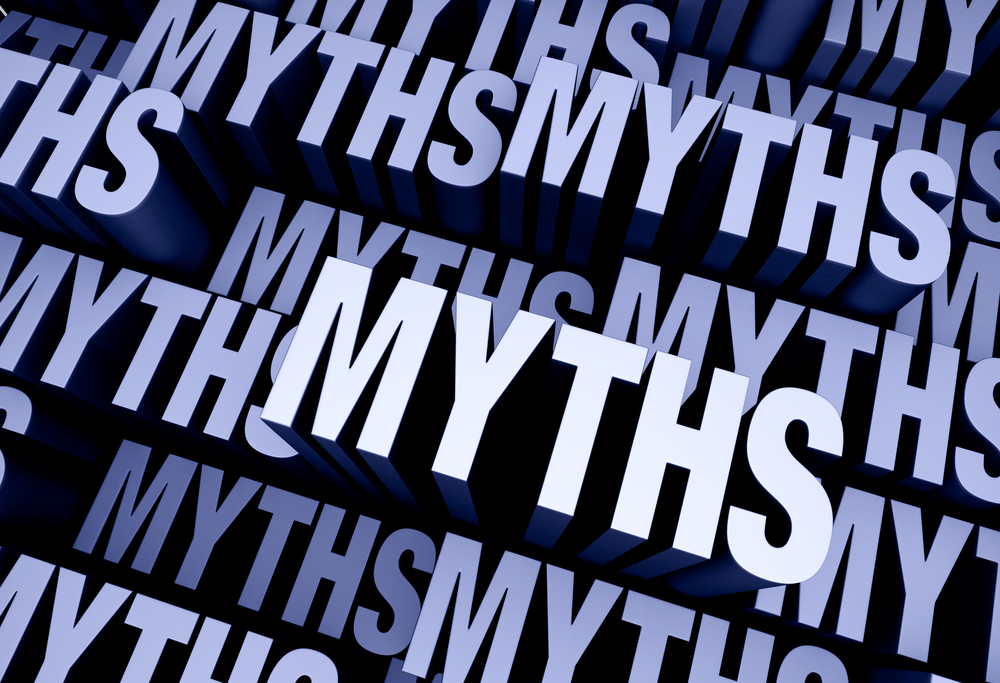Subscribe to our newsletter!
Stay updated with the latest security news, tips, and promotions.

You probably think that your information is pretty secure.
After all, you tend to use the same old websites over and over, and you downloaded a free antivirus program a while back. And anyway, who would be interested in your information? It’s not as if you have any major secrets or passwords to huge bank accounts in your back pocket, right?
Psssst. Want to know a secret? If that’s how you are approaching security, you’ve got it all wrong. Sure you may not be the IRS or Anthem, but surely you have information that you would never want to fall into the wrong hands. So it’s worth it to make sure you aren’t buying into any of the following common security myths that can get you in a lot of trouble.
Just because you aren’t downloading torrents or visiting online gambling sites, don’t assume you aren’t doing anything dangerous. Simply being on the internet is a danger. Just by visiting certain websites you can become the victim of malvertising. Malvertising uses online ads to spread malware by placing malware laced ads into a lineup of legitimate ads distributed by ad exchange networks. These malicious ads then end up on reputable websites, completely unbeknownst to the people behind the website. When you view this supposedly “safe” page, the rotten code injects viruses, malware and more onto your computer.
Sound too crazy to be true? Well, websites belonging to The New York Times, Yahoo, The London Stock Exchange and The Huffington Post have all been victims of malvertising campaigns. If you visited any of these sites when the malware-laced ads were running, you may very well have been victimized, too.
Everybody has something to hide, even if it’s “just” health records or your email account.
Remember the Anthem hack earlier this year? Cyber criminals stole the health information of more than 80 million people who are covered by the second largest health insurer in America. And lest you think health information isn’t really all that sensitive, think again. Aside from the fact that you might not want everyone to know that you’re blood-type O and allergic to seaweed and mothballs, also gathered from all that health information were social security numbers, employment details, incomes, email addresses and in some cases, credit card numbers.
So yes, even if you have nothing to hide, you still want to leave some information hidden, and should probably try harder to keep it secure!
There is a rumor going around some circles that antivirus software doesn’t work anymore. This isn’t true, actually. It’s more of a case of misunderstanding.
Antivirus software does just what it is supposed to if YOU do what you are supposed to. In other words, if you update your antivirus software on a regular basis, and use a reliable program that protects you from the most modern and sophisticated threats (i.e., zero-day attacks) then you will be protected. However, if you don’t bother updating your antivirus as required, or if you use an antivirus with a mediocre track record, then you will end up with protection that is only “so-so”. And that won’t be enough to protect you from serious threats.
The problem is that people often download free programs and assume that they are going to be a-okay. But downloading antivirus protection is only part of the equation. You also need to be an active partner in keeping your information secure by choosing wisely in the first place and updating the program as recommended.
How can you be sure you’re choosing wisely? Luckily, you don’t have to rely on your intuition when it comes to choosing antivirus. There are experts who are trained to do it for you. AV Test Institute, for example, is one place where professionals test out antiviruses to make sure they are actually doing what they are supposed to do. So before you decide that all antiviruses don’t work, check out which ones are receiving high scores from AV Test. Choose an antivirus that offers advanced real-time protection and make sure it is always updated.
Ever heard of the term ‘patch’ when it comes to computer software? It means a piece of software that has been designed to update a computer program to fix or improve it. Patches are important, because they are the best way for software manufactures to fix bugs and vulnerabilities after they have been found. If you don’t install the patch when a software company issues it, you’re deliberately leaving yourself unprotected.
Unfortunately, many people don’t bother installing software patches when they are issued. This isn’t just true of lazy individuals and their home PC, either. According to ControlNow.com, a forum for IT experts, only one third of small businesses install patches as directed. (And people wonder why they got breached…)
The trouble is, patches are often misunderstood. Patches are not are tech mumbo jumbo programs designed to benefit the operating system or software company. In reality, patches are specifically for the user’s benefit. Software companies like Java and Oracle, and operating systems like Microsoft Windows, release patches when vulnerabilities are exposed but these patches will only work if they are installed by users.
By not patching ASAP, you’re basically rolling out the red carpet and handing out backstage passes to hackers. And it’s not all that complicated to install patches once you get the hang of it. Like cleaning the bathroom or paying bills, it’s not much fun but somebody’s gotta do it, and it’s for your own good, so it might as well be you.
Now that know that these four myths aren’t true, you are better equipped to protect yourself better online.
Now you are in the know when it comes to busting security myths. So tell us: